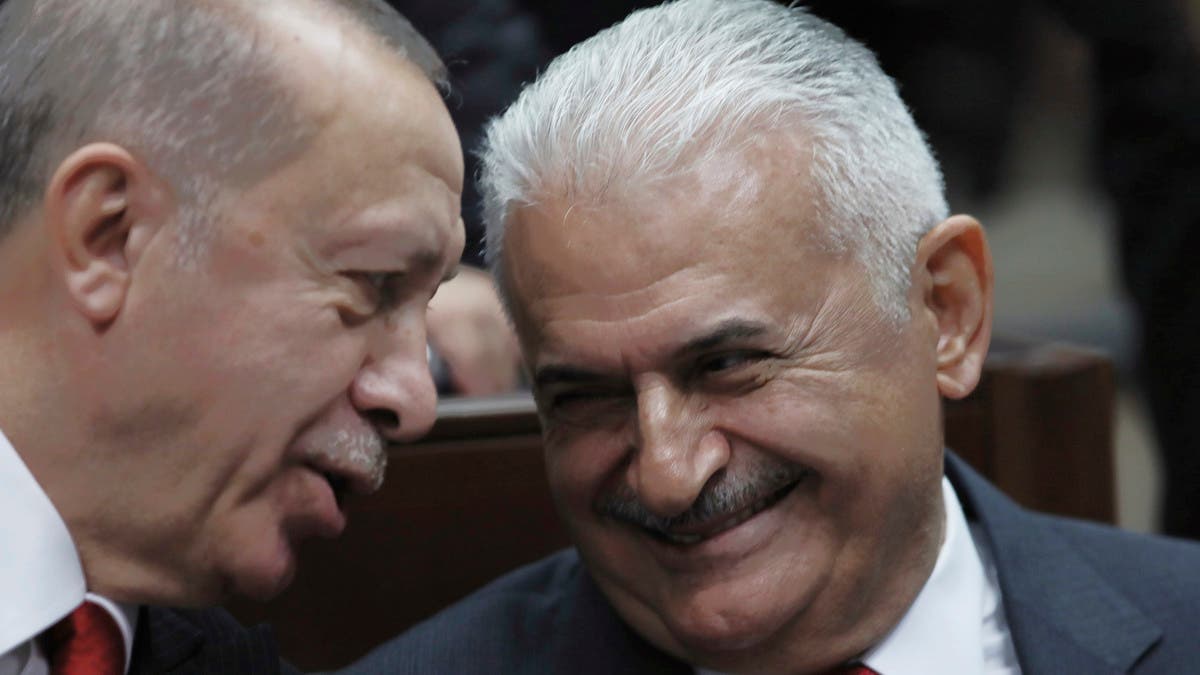When Finland and Sweden signaled they were thinking of making the historic decision joining NATO, the alliance expected a tough response from Moscow, not from one of its own.
Yet at a gathering of NATO foreign ministers with their Finnish and Swedish counterparts on Saturday to celebrate the biggest shift in European security in decades, Turkey’s participant darkened the mood.
For the latest headlines, follow our Google News channel online or via the app.
Turkish Foreign Minister Mevlut Cavusoglu was “in crisis mode,” a NATO diplomat told Reuters of the evening meeting in Berlin. A day earlier Turkey’s president, Recep Tayyip Erdogan, had shocked fellow NATO members by saying he could not support membership for either Finland or Sweden.
Cavusoglu not only set conditions for Turkey accepting the membership bids but raised his voice at Sweden’s Ann Linde in what three NATO diplomats said was an “embarrassing” break in protocol.
“For us it was a historic moment and yet Cavusoglu said he was irritated at Linde’s ‘feminist policy,’ bringing so much drama,” another NATO diplomat said, describing a very tense atmosphere in the German foreign ministry in Berlin, in which many allies opted for silence to calm the situation.
“We were trying to understand what our Turkish colleague wanted – you know, really wanted,” said the diplomat, who like others spoke on condition of anonymity because of the sensitivity of the issue. “It was embarrassing.”
Ankara’s main demands are for the Nordic countries to halt support for Kurdish militant groups present on their territory, and to lift their bans on some sales of arms to Turkey.
A Turkish diplomatic source said Cavusoglu had outlined Turkey’s stance respectfully, rejecting what he said was an allegation from Linde that its opposition was due to Sweden’s feminist foreign policy.
“Her comments are not helping Sweden’s NATO bid, while the statements coming from Finland are carefully crafted,” the source said. Sweden’s foreign ministry did not immediately respond to a request for comment after business hours.
Spurred on by Russia’s invasion of Ukraine, both countries applied to join NATO on Wednesday.
Russia, which says the threat posed by NATO expansion was a major reason it sent troops into Ukraine, has played it cool.
While Russian Deputy Foreign Minister Sergei Ryabkov said Finland and Sweden joining was a “grave mistake” with “far-reaching consequences,” President Vladimir Putin said on May 16 their bids to join NATO posed no direct threat to Russia.
Contact made
The souring mood at Saturday’s meeting was all the more surprising because NATO diplomats had told Reuters in early May that all 30 allies supported Finland and Sweden’s accession to the alliance because of the security benefits it would bring.
NATO allies had wanted to seal their accession in record time as a way of solidifying their response to Russia, yet on Monday, Erdogan said the Swedish and Finnish delegations should not come to Ankara as planned.
On Wednesday, the Turkish presidency said a key Erdogan adviser had spoken with counterparts from Sweden, Finland, Germany, the United Kingdom and United States. NATO membership progess was only possible if Turkey’s expectations were met, it said.
One person close to the situation gave a more upbeat assessment, saying the conversation with Sweden was positive and opened the door for the delegation visits next week. Yet the calls on Wednesday came after five days of struggles by the Nordic countries to reach Erdogan’s office, the person said.
“All this is muddying the waters, but not holding up the overall accession plan,” the person said, under condition of anonymity.
Ankara says the arms ban – adopted by the Nordic countries in response to Turkey’s 2019 military incursion into northern Syria against Kurdish militants – is inappropriate for prospective members of a security pact.
Turkish state broadcaster TRT said Sweden and Finland had not approved Turkey’s request for the repatriation of 33 people with alleged links to groups it sees as terrorists. The chairman of the Swedish parliament’s Foreign Affairs Committee, Kenneth Forslund, said a solution could be found, but elsewhere.
“That Sweden would start expelling people who are not considered terrorists according to the terror lists the EU has, that’s totally unthinkable,” he said.
Unfinished business
Diplomats in European capitals say they have seen brinkmanship from Erdogan before leading to a deal. An unpredictable but strategically crucial NATO ally, Turkey under Erdogan has pursued an independent foreign policy but remains a big contributor to NATO missions.
The tension has clouded ties between Washington and Ankara just as they appeared to have improved following five years of disagreements on Syria, Turkey’s closer ties with Moscow, and the erosion of rights and freedoms in the country.
Cavusoglu will meet US Secretary of State Antony Blinken in Washington later on Wednesday.
“We are seeing the winds of the Cold War again,” Cavusoglu told members of the Turkish American community late on Tuesday.
The source close to the process said Cavusoglu is taking a hard line publicly, pushed by Erdogan, but that there is a risk foreign allies will isolate Turkey if he goes too far.
At home, Erdogan faces tight elections by mid-2023 and his jabs at Europe play to domestic nationalist sentiment.
The United States is still confident of a solution. Blinken told a news conference on Sunday talks were ongoing over the differences between Turkey, Finland and Sweden.
“When it comes to the membership process, I am very confident that we will reach consensus,” he said.
Read more: Ukraine pushed Russian troops back to Russian border, regain lost territories: US

 World3 years ago
World3 years ago
 World3 years ago
World3 years ago
 Business12 months ago
Business12 months ago
 Entertainment7 years ago
Entertainment7 years ago
 World7 years ago
World7 years ago
 Entertainment7 years ago
Entertainment7 years ago






